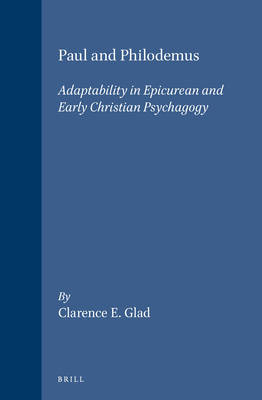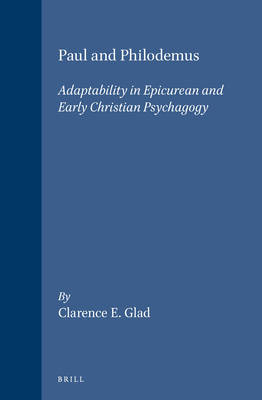
- Afhalen na 1 uur in een winkel met voorraad
- Gratis thuislevering in België vanaf € 30
- Ruim aanbod met 7 miljoen producten
- Afhalen na 1 uur in een winkel met voorraad
- Gratis thuislevering in België vanaf € 30
- Ruim aanbod met 7 miljoen producten
Zoeken
€ 544,95
+ 1089 punten
Omschrijving
As Paul guides and educates his converts he functions as a psychagogue ("leader of souls"), adapting his leadership style as required in each individual case. Pauline psychagogy resembles Epicurean psychagogy in the way persons enjoying a superior moral status and spiritual aptitude help to nurture and correct others, guiding their souls in moral and religious (re)formation.
This study relates Epicurean psychagogy of late Republican times to early Christian psychagogy on the basis of an investigation which places the practice in the wider socio-cultural perspective, contextualising it in Greco-Roman literature treating friendship and flattery and the importance of adaptability in moral guidance.
Pauline studies are advanced by the introduction of new material into the discussion of the Corinthian correspondence which throws light on Paul's debate with his recalcitrant critics.
This study relates Epicurean psychagogy of late Republican times to early Christian psychagogy on the basis of an investigation which places the practice in the wider socio-cultural perspective, contextualising it in Greco-Roman literature treating friendship and flattery and the importance of adaptability in moral guidance.
Pauline studies are advanced by the introduction of new material into the discussion of the Corinthian correspondence which throws light on Paul's debate with his recalcitrant critics.
Specificaties
Betrokkenen
- Auteur(s):
- Uitgeverij:
Inhoud
- Aantal bladzijden:
- 432
- Taal:
- Engels
- Reeks:
- Reeksnummer:
- nr. 81
Eigenschappen
- Productcode (EAN):
- 9789004100671
- Verschijningsdatum:
- 1/08/1995
- Uitvoering:
- Hardcover
- Formaat:
- Genaaid
- Afmetingen:
- 155 mm x 235 mm
- Gewicht:
- 783 g

Alleen bij Standaard Boekhandel
+ 1089 punten op je klantenkaart van Standaard Boekhandel
Beoordelingen
We publiceren alleen reviews die voldoen aan de voorwaarden voor reviews. Bekijk onze voorwaarden voor reviews.








